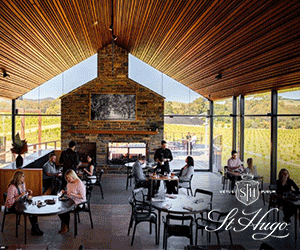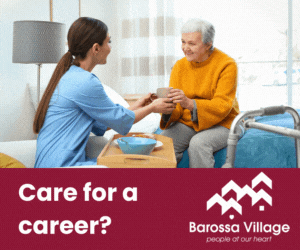Story
Making a difference where it matters
words nikita skusE
PHOTOGRAPHY alicia lÜdi-schutz

For most Barossa families, a trip to the park is one of the easiest weekend outings to execute.
Whilst catching up at our picnic bench though, Seppeltsfield resident, Abbey Underwood, sees past the sunshine and scenery of the area and towards the difficulties of accessing the space for those with a disability.
She explains how the hilly lawns would be a nightmare for anyone in a wheelchair to manoeuvre – something many of us would never have put a second thought towards.
“Everything is just a thousand times harder for these guys,” she says.
“There’s not a lot of accessibility in terms of spaces here in the Barossa.”
The 19-year-old disability advocate recently took out the title of 2021 Barossa Young Ambassador after spending nine months in the programme sharing this passion for accessibility and inclusivity with the group and wider community.
“Winning was so overwhelming,” she says.
“I wasn’t expecting it, so it was the weirdest feeling. I can’t even put it into words.”
In her short time since graduating from Nuriootpa High School in 2019, Abbey has worked as a school services officer in the Disability Units at Tanunda Primary and Nuriootpa High, as an in-home support worker and for the Lotus Project which provides school holiday activities for children with disabilities.
Now, she does relief work in schools and coaches children in Auskick and netball, all while completing a Bachelor of Early Childhood Education at the University of South Australia.
Despite the busy schedule, she’s confident in her career path.
“I love it. I know I’m in the right field,” she beams.
As part of the Young Ambassador programme, participants had to present a project relating to the region.
Abbey’s project inspiration sprung from the comments section of a Barossa Council Facebook post about a local playground upgrade.
“All these special needs parents started to comment things on the post like ‘please consider my child’, ‘please make it wheelchair friendly’, ‘make it inclusive of all abilities’,” Abbey explained.
“So, I started to chat to a few mums and dads whose children have special needs and I got comments like ‘there’s not one single playground that’s totally accessible for our child here’.
“Every parent just wants their children to play, and that’s just not something that they can do at the moment.”
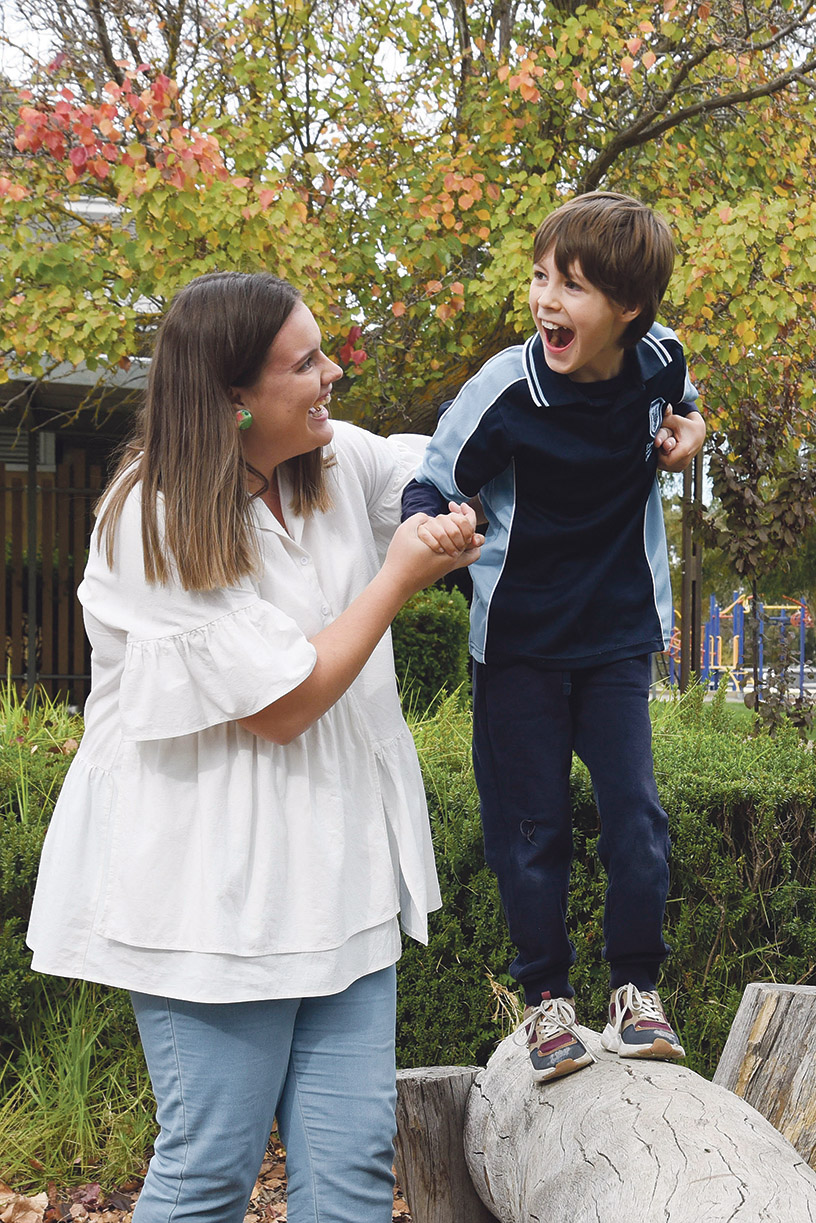
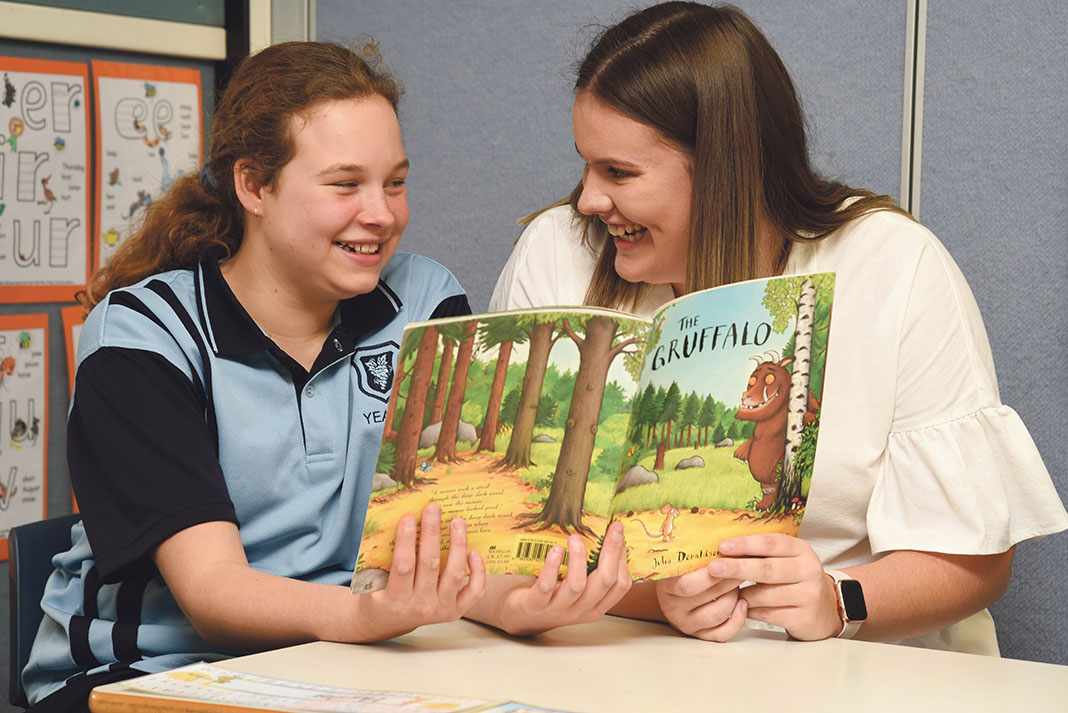
Abbey saw the unequivocal need for an inclusive and accessible playground in the Barossa and with that her project was born.
“Picture who are playgrounds for?” Abbey asks.
“They’re not for ninja warriors, they’re for children to enjoy and actually be successful on.”
Abbey’s playground proposal includes eliminating hazards like uneven grounds and equipment that is too high and adding equipment like talking boards, low to ground obstacles, wide ramps and sensory activities that an array of children can enjoy.
“Playgrounds create that community-centred space, which is what’s so important in the Barossa,” Abbey says.
“If we’re leaving out a whole group of people—and that group of people being children or even young adults with disabilities that then aren’t able to play and engage safely or confidently—then we’re missing a whole demographic.”
On the night Abbey was crowned Young Ambassador, she was approached to speak to The Barossa Council about her project – an invitation she sees as a hopeful step towards bringing this dream to fruition.
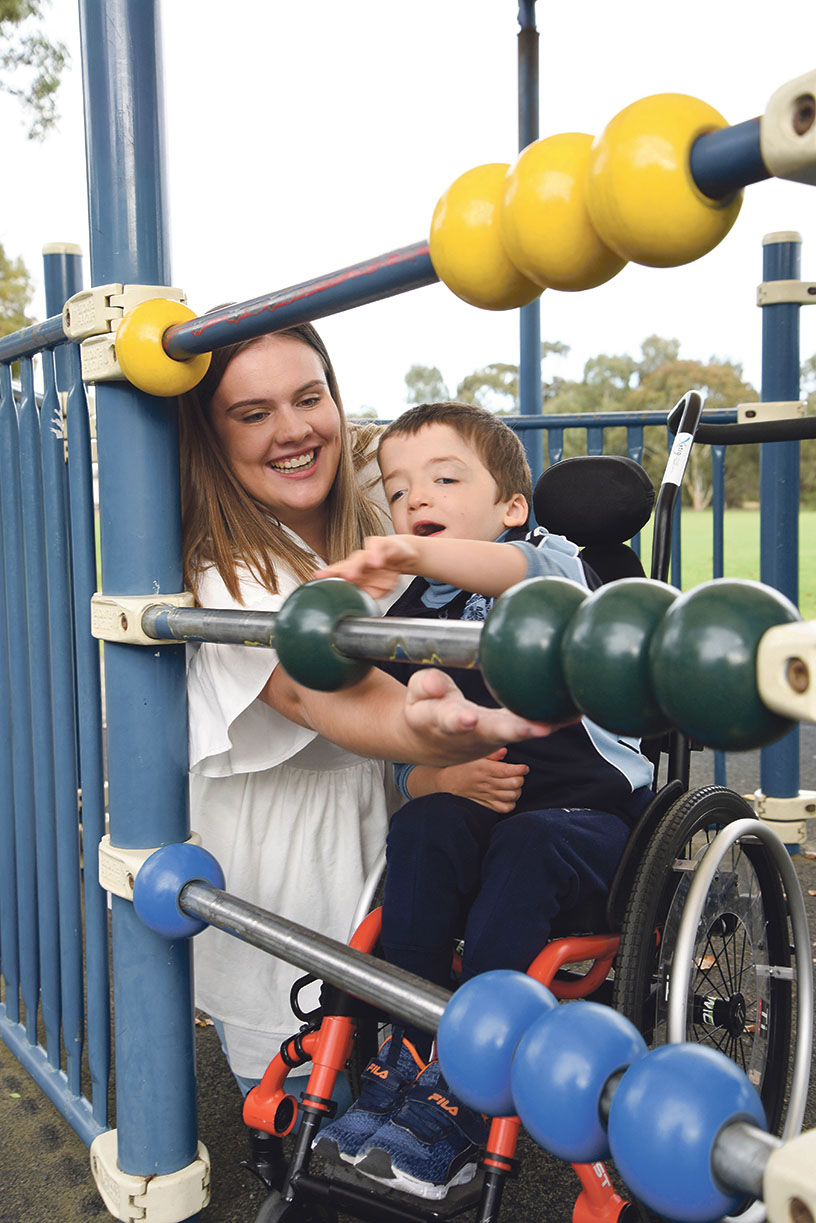
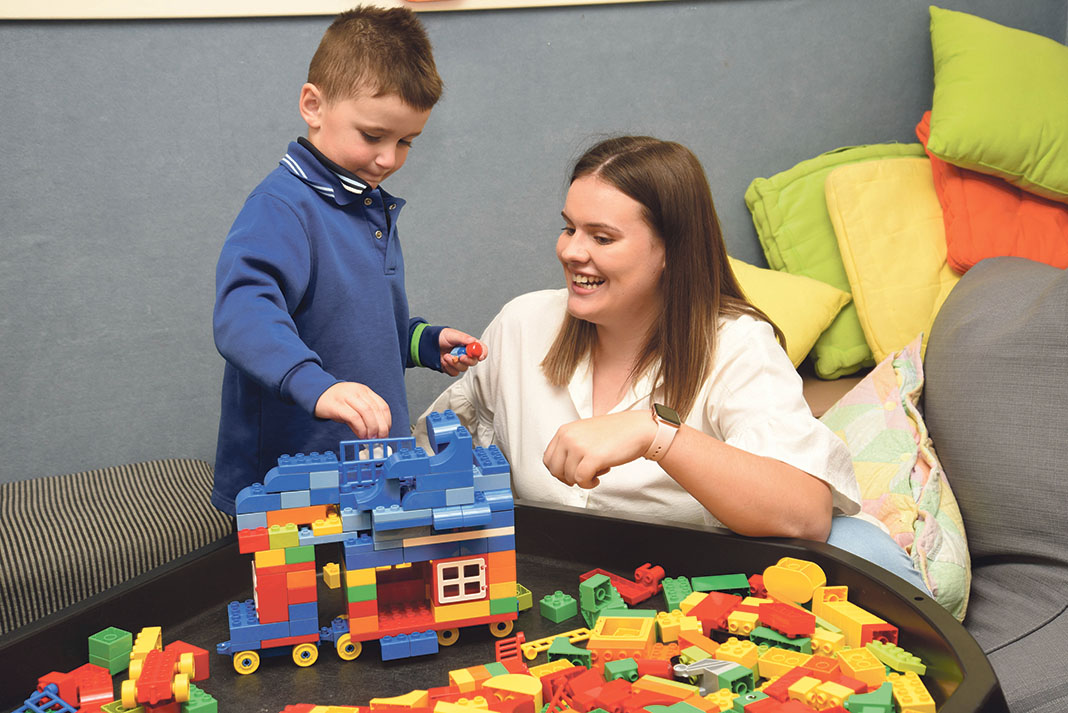
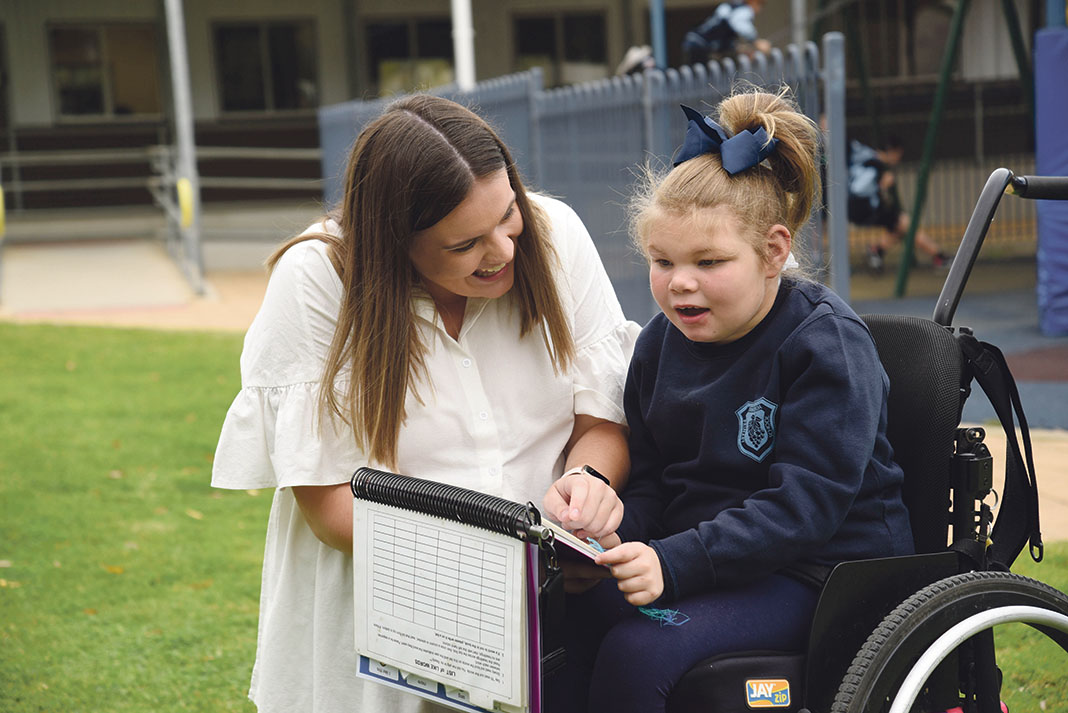

“When we advocate for them, and when we fight for them, we are their voice and we are saying the things they wish they could say.”
- Abbey Underwood
With this invite, she also recognises the responsibility she holds in advocating for others.
“I actually am speaking on behalf of families who live like this every single day. They are literally living in a community that isn’t meeting a really specific need for them,” she says.
“So, it’s not just coming from me, it’s coming from them. I’m speaking for heaps of people.”
Sharing the voices of those with a disability is something that has been the driving force behind Abbey’s passion for inclusivity and accessibility, inspired by her bond with a student with non-verbal autism.
“She’s just amazing,” Abbey says, “and she’s at the back of my mind every day when I’m doing this work.”
This student taught Abbey that many of these children don’t have a voice, but they have something to say.
“When we advocate for them, and when we fight for them, we are their voice and we are saying the things they wish they could say.”
Abbey isn’t set on where her future is headed just yet, but has plans to tackle additional degrees in special and inclusive education after completing her current one.
At the top of her to-do list though is to continue pushing for an accessible and inclusive Barossa, which she believes will only add to the desire of the region.
“The Barossa is the perfect place for it,” she maintains.
“If we have people with a good, strong attitude, who are passionate to fight for this stuff and passionate to bring it to life, it will happen.”



